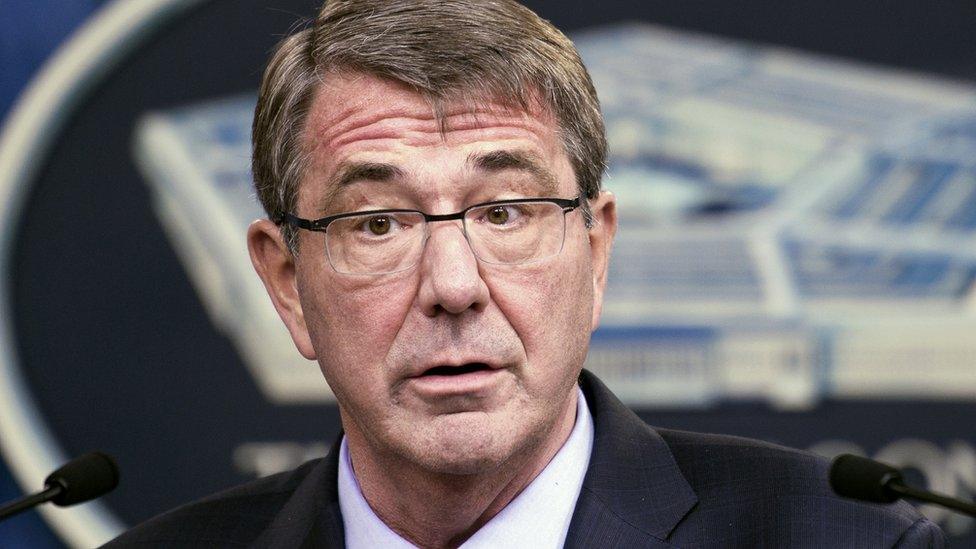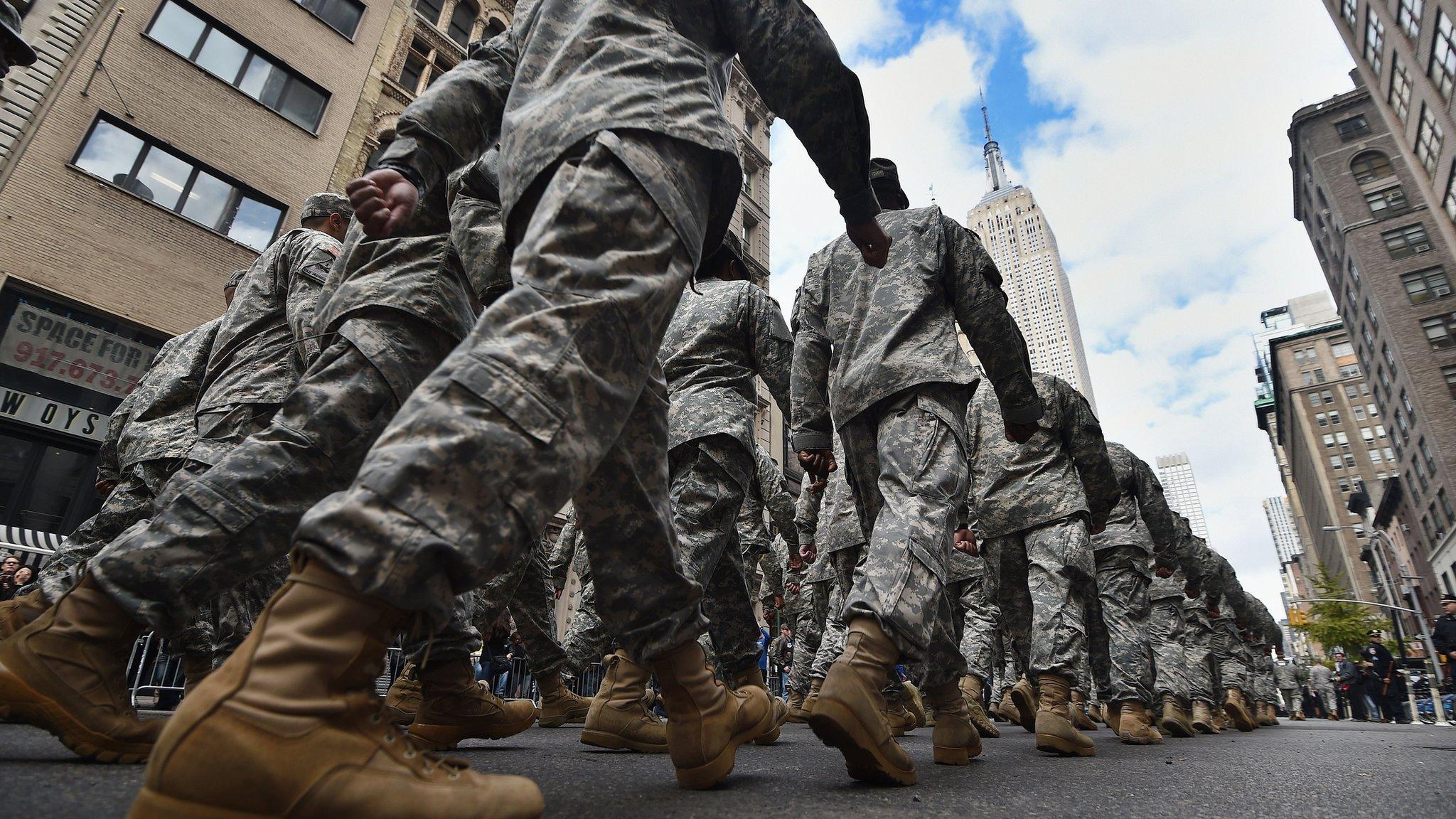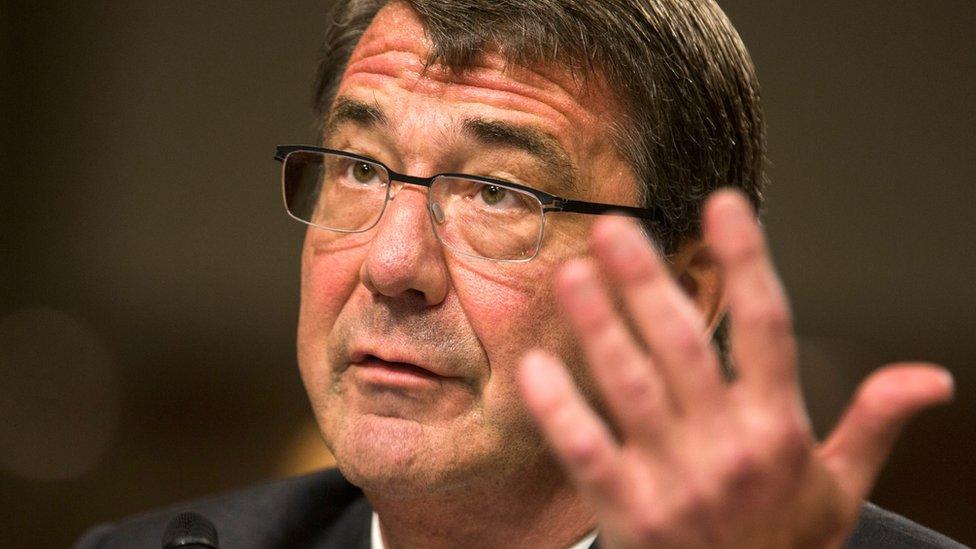US military lifts transgender ban
- Published

The policy will be phased in over one year
The US military has lifted its ban on transgender members serving openly in the country's armed forces.
The new policy, which will allow troops to transition gender while serving and will set standards for medical care, will be phased in over a year.
"This is the right thing to do for our people and for the force," said Defence Secretary Ash Carter.
It will ensure no-one can be discharged or denied re-enlistment based on their gender identity.
Jamie Ewing, who was kicked out of the US Army for being transgender, told the BBC she was happy to hear the news.
"I am very pleased," she said. "I look forward to re-enlisting and to hopefully wear my uniform again sometime in the near future as a soldier in the US Army."
Being transgender in the US military
But Republican Senator Jim Inhofe of Oklahoma criticised the government for "forcing their social agenda" on the military and said the policy change should be put on hold.
Earlier at a press conference at the Pentagon, Mr Carter said: "Our mission is to defend this country, and we don't want barriers unrelated to a person's qualification to serve preventing us from recruiting or retaining the soldier, sailor, airman, or Marine who can best accomplish the mission."
He said a recent study by the Rand Corporation, commissioned by the military, estimates that there are between 2,500 and 7,000 transgender active service members in a total force of 1.3 million, with an additional 1,500 to 4,000 among reserve units.
The Palm Center, an influential think tank which studies gender in the military, estimates that there are about 12,800 transgender service members.
Transgender individuals will be able to enlist in one year, as long as they have been "stable" in their identified gender for 18 months.
Mr Carter called the policy "a matter of principle" and said he had consulted transgender service members over the years to discuss how best to meet their needs.
He also looked at policies in countries like the UK, Israel and Australia, which already allow transgender members to serve openly.
"I'm confident that we have reason to be proud today on what this will mean for our military," he said. "It's the right thing to do. Our military, and the nation it defends, will be stronger."
- Published25 June 2016

- Published14 July 2015
